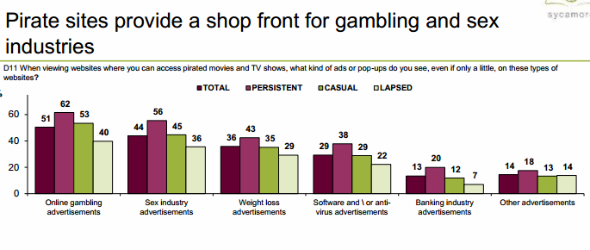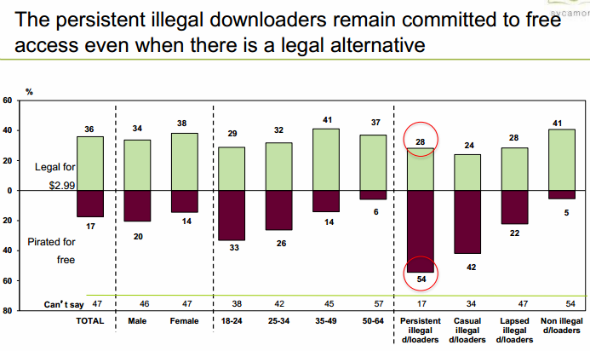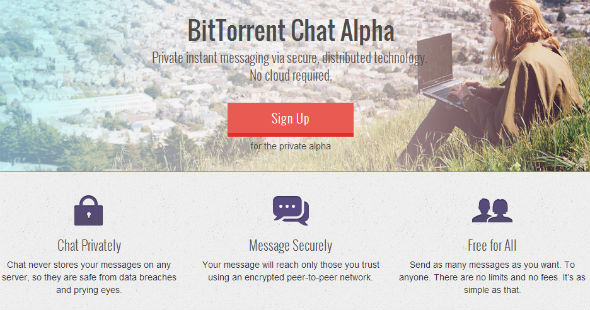Comcast Terminates Accounts of Persistent Pirates
mercredi 2 octobre 2013 à 18:58 As one of the largest Internet providers in the United States, Comcast is alerted to the existence of pirating customers on a daily basis.
As one of the largest Internet providers in the United States, Comcast is alerted to the existence of pirating customers on a daily basis.
When the provider receives DMCA notices it is required to forward them to the customers in question, and if the copyright holder is part of the six-strikes Copyright Alert System the notice results in an official ‘strike’.
The above is nothing new, but the situation gets more complex when it comes to the effects these DMCA notices have on the long term. Although those participating in the six-strikes system have made it very clear that no accounts will be terminated, outside the program it is certainly an option.
TorrentFreak has received information suggesting that Comcast is actively terminating the accounts of repeat infringers under certain circumstances, without a court order. When we asked the ISP about their policy with regard to repeat copyright infringers, this was confirmed.
“Termination is a requirement of the DMCA and applies to all ISPs, not just Comcast, as a consequence of repeated and egregious copyright infringement,” a Comcast spokesperson told TorrentFreak.
Comcast is indeed correct in stating that Internet providers have to act against repeat infringers. The DMCA requires ISPs to “… adopt and reasonably implement a policy that provides for the termination in appropriate circumstances of subscribers and account holders of the service provider’s system or network who are repeat infringers.”
However, legal experts and Internet providers interpret the term “repeat infringer” differently. For example, AT&T previously said that it would never terminate accounts of customers without a court order, arguing that only a court can decide what constitutes a repeat infringement.
Comcast, however, informs TorrentFreak that a court order is certainly not required under the DMCA and that the company’s interpretation of the law is appropriate.
Comcast is not the only company to take this stance. Verizon’s terms of service also suggest that account termination is an option, without due process. Similar policies are also applied by other service providers, such as YouTube for example. Needless to say, terminating an Internet connection will have more impact than shutting down a YouTube account.
While the DMCA has been in place for more than a decade, the launch of the Copyright Alert System puts the repeat infringer issue in a new light. Previously, ISPs were not obliged to keep logs of copyright infringement notices for a set period of time, but under the new system they are.
In addition, as part of the alert system ISPs are required to track the number of notices “repeat infringers” receive. This means that providers are keeping a database of the most persistent pirates, which outside of the CAS can lead to terminations in Comcast’s case.
Comcast assured TorrentFreak that “termination of a customer’s Internet service is not part of the Copyright Alert System,” but didn’t deny that these notices can eventually lead to account terminations under the ISP’s acceptable use policy.
Under what circumstances this would take place, and how Comcast defines “repeated and egregious” copyright infringement, remains unknown for now.
Source: Comcast Terminates Accounts of Persistent Pirates
 Speaking with TorrentFreak in July 2012, Australian adult industry businessman Robert King
Speaking with TorrentFreak in July 2012, Australian adult industry businessman Robert King 
 When it comes to pirating movies and TV-shows Australia is consistently listed as one of the top countries, despite its relatively small population of 22 million people.
When it comes to pirating movies and TV-shows Australia is consistently listed as one of the top countries, despite its relatively small population of 22 million people. 

 The United States Trade Representative, the MPAA and in particular the RIAA/IFPI have very few positive things to say about vKontakte.
The United States Trade Representative, the MPAA and in particular the RIAA/IFPI have very few positive things to say about vKontakte.
